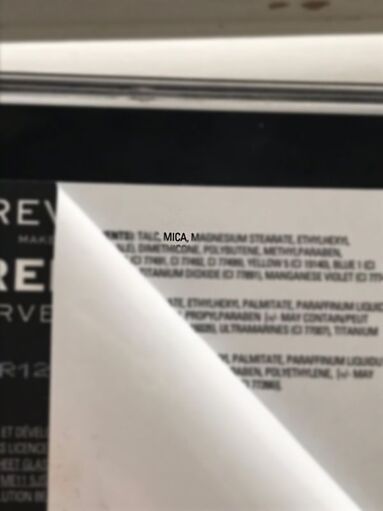The Real Cost of Makeup
By Emily Lane
Most of our makeup nowadays is vegan and not tested on animals, yet cruelty is still dominating the beauty industry and we are all shielded from it
"All that glitters is not gold" couldn't be a more appropriate idiom for the illegal mining of Mica in India. Mica is a shiny mineral found in granite and is abundant in India where 25% of all the world's Mica comes from. Children as young as three are sent down dark and dangerous mines to extract the Mica which is then added to powder based products highlighters and eyeshadows. In India alone, around 90% of all of the Mica mines operate illegally meaning child labour is likely to be in operation, endangering the lives of an estimated 22,000 children.
I wanted to conduct my own investigation into how much of my own makeup contains Mica and where it comes from. However tracing high street brands’ supply chains are difficult. Lush cosmetics is one of the few companies that have substituted Mica for synthetic Mica instead to ensure transparency in their ethical priorities. L’Oreal also announced that 60% of their Mica comes from the US whilst the remaining 40% is mined sustainably in India or is synthetically manufactured.
"All that glitters is not gold" couldn't be a more appropriate idiom for the illegal mining of Mica in India. Mica is a shiny mineral found in granite and is abundant in India where 25% of all the world's Mica comes from. Children as young as three are sent down dark and dangerous mines to extract the Mica which is then added to powder based products highlighters and eyeshadows. In India alone, around 90% of all of the Mica mines operate illegally meaning child labour is likely to be in operation, endangering the lives of an estimated 22,000 children.
I wanted to conduct my own investigation into how much of my own makeup contains Mica and where it comes from. However tracing high street brands’ supply chains are difficult. Lush cosmetics is one of the few companies that have substituted Mica for synthetic Mica instead to ensure transparency in their ethical priorities. L’Oreal also announced that 60% of their Mica comes from the US whilst the remaining 40% is mined sustainably in India or is synthetically manufactured.

After trying to find ingredients on the makeup itself, I realised most of my powder based products come in card packaging which most people throw away after purchase. However on some of my cheaper 'Revolution' branded makeup it lists the ingredients behind a peel-away sticker: all of which containing Mica. So why do companies want us to be hidden from the contents of their cosmetics? If we were exposed to the harsh reality of the sourcing of our makeup every time we use it; would we want to buy and apply it?
Mica is a cheap, glistening mineral making cheap makeup appear to be of a higher quality. Drugstore brands rely on the cheap sourcing of Mica to keep costs low, prices low and profits high. If the mining of Mica were to be forbidden, many household companies such as Rimmel, Revolution and Morphe would be forced to stop unethically sourcing Mica, putting the thousands of families who rely on their children receiving a small income at risk.
So what's the solution? In my opinion, regulations would need to be enforced in the Mica industry to ensure safety, reasonable working hours and a reliable, stable income. Regulations should also be in place for the makeup companies responsible for sourcing Mica as child labour should never be an option. This would, of course, add value to the price of Mica so will the makeup industry find another way to unfairly exploit mineral rich companies or will they start practising ethics?
Mica is a cheap, glistening mineral making cheap makeup appear to be of a higher quality. Drugstore brands rely on the cheap sourcing of Mica to keep costs low, prices low and profits high. If the mining of Mica were to be forbidden, many household companies such as Rimmel, Revolution and Morphe would be forced to stop unethically sourcing Mica, putting the thousands of families who rely on their children receiving a small income at risk.
So what's the solution? In my opinion, regulations would need to be enforced in the Mica industry to ensure safety, reasonable working hours and a reliable, stable income. Regulations should also be in place for the makeup companies responsible for sourcing Mica as child labour should never be an option. This would, of course, add value to the price of Mica so will the makeup industry find another way to unfairly exploit mineral rich companies or will they start practising ethics?
Other Sites |
|